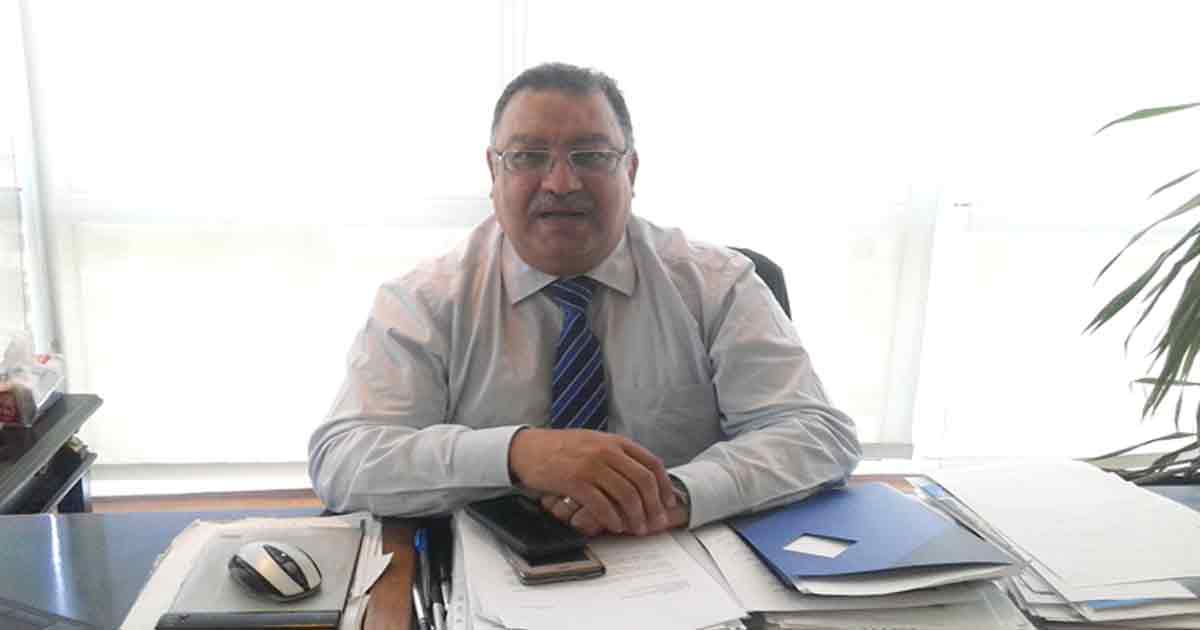Prime Holding’s CEO Mohamed Maher
The dollar crisis is mainly ascribed to lack of trust
Some brokerage companies suspended their activities in the past year
Merging small brokerage companies is a hard decision faced with many obstacles
Saudi-Egyptian agreements reassured foreign investments
By Mahmoud Hammad
In an interview with Middle East Observer, Prime Holding’s CEO Mohammed Maher said that acquisitions would revive in Egypt in the coming period, especially in food industries and real estate sectors.
He shed light on the Central Bank’s latest monetary policies, mostly the pound devaluation decision, and their impact on the Egyptian market. Moreover, he regarded the high profile visits of presidents and kings to Egypt very positive for their huge importance and great outcomes.
What are your projections for Egypt’s acquisition market?
I expect it to revive over the coming period, despite the gap between the official and parallel dollar exchange values, which results from the citizens and traders’ distrust which pushes them to preserve dollars. That is the main reason behind the dollar crisis; it is not a shortage in dollar but rather in trust, which leads to decrease of supply and increase in demand.
Which sectors are expected to see major acquisitions?
These would be food industries, real-estate, retail chains and household essentials, seeing they are very promising sectors. They attract investors, mostly foreign ones, because the Egyptian market is one of the largest consuming markets, which in turn helps boost such sectors.
Do you think that the dollar crisis is basically attributed to lack of confidence?
Yes, we can say it is mainly based on trust issues. For instance, Egyptian expatriates are estimated at 10m, if each one of them transferred only $5000, this will provide $50,000. Moreover, tourism is a key foreign currency resource; it could generate up to $10bn in some years, but now it is limited to $3-4bn, creating a wide gap. Thus, restoring nearly 50 per cent of tourism revenues and exports will balance exchange market in Egypt.
Do you think that the Central Bank’s latest monetary decisions were essential?
Yes, they were especially because of the great difference between dollar exchange value in banks and in black market. It caused Egypt to lose part of its competitiveness following a 20 per cent drop in exports during the 2016 first quarter.
Lifting caps on dollar deposits and withdrawals was an important step, as they hampered industrial and trade companies exporting raw materials. Thus, it had a positive impact on market.
As for the pound devaluation decision, it contributed to bringing back balance in market, most importantly because international currencies value, like euro, Russian ruble and Thai baht, dropped against dollar then recovered some of their losses. Consequently, the Central Bank had to take such decision.
Did such decisions encourage investment flows?
Of course, it did; it attracted indirect investments through stock market and direct ones through the opportunities provided by the state, in addition to the companies’ willingness to partake in the acquisition processes.
How do you think the devaluation decision would impact the stock market? What about the brokerage companies’ performance?
The stock market’s recovery is subject to balancing dollar exchange values at official and parallel markets in Egypt. This requires adopting positive policies that would increase foreign currency revenues, support exports and boost tourism, thus restoring confidence.
I expect the stock market to maintain some of the strength it gained since the pound devaluation. It still has to grow more, which would happen with the companies and some state banks’ public offerings, as well as, investment and money market laws’ amendments.
Regarding the brokerage companies, they were greatly affected in the last year and half due to the sharp drop in trading values. But, following the devaluation decision and the subsequent stock market revival, the brokerage companies regained their balance and profits.
Did any brokerage companies shut down because of the trading drop? What about the calls on mergers to survive the crisis?
Some companies suspended their activities, but maintained their assets and a limited number of staff to stop major losses. This has indeed harmed the Egyptian money market. We hope the new monetary policies would help bringing things back to normal.
I have to say brokerage companies did not seek to merge, seeing it is a hard decision faced with many obstacles. Moreover, these companies are more like a family business which makes merging even hard.
How do you see Egypt’s economic situation?
I think we are going through a very “critical time”. The state has big plans concerning infrastructure and mega projects. It is also carrying out some political and financial reforms. Add to this, the popularity the Egyptian market gained following devaluation.
Yet, there are some hindrances represented in bureaucracy at investment, industry, agriculture and housing ministries, which need to be eliminated to encourage investment flows.
What do you think of the kings and presidents’ visits to Egypt?
Such visits, especially the latest of King Salman, boost investments for the strategic importance they have. Moreover, they resulted into major investment agreements and joint projects and not just grants and loans. This sends positive signs and messages that would reassure foreign investors. It might even stir more visits and investment flows from other countries and companies in fields of energy, logistics, real-estate and food industries.


